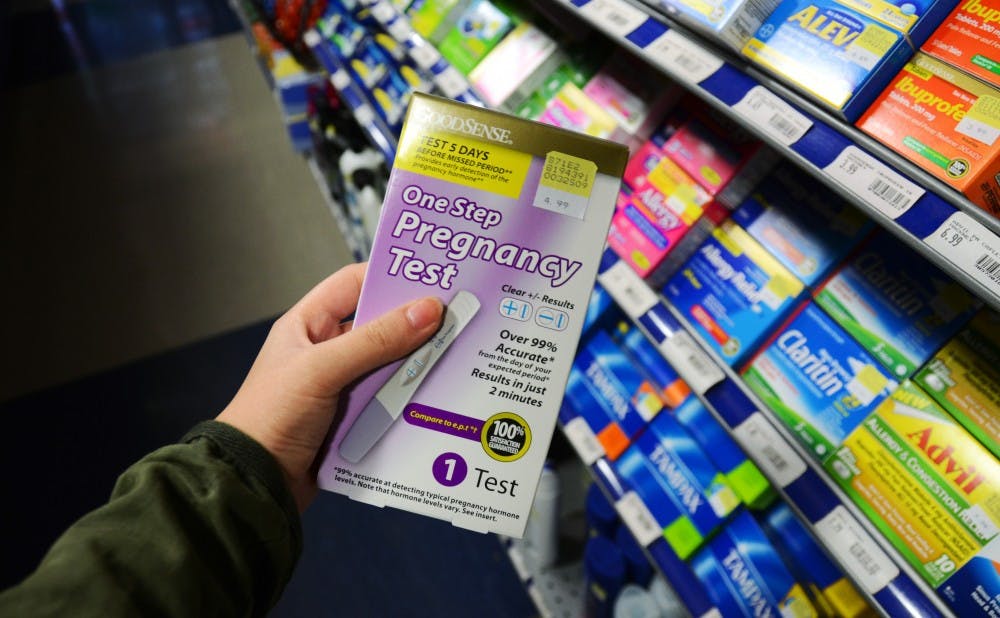Teen pregnancy in North Carolina has dropped to a record-low rate, which some health professionals say is a result of open dialogue about what goes on behind closed doors.
A data set released by the North Carolina State Center for Health Statistics shows that in 2012, there were approximately 39.6 pregnancies per 1,000 girls aged 15 to 19—down from about 44 pregnancies per 1,000 in 2011. Additionally, 74 percent of counties reported decreased pregnancy, and the current rate is 62 percent lower than what it was at its peak in 1990. These developments are part of a nationwide trend linked to more effective birth control available to young adults as well as better educational programs designed to mentor young women on sexual health, according to a press release from the Adolescent Pregnancy Prevention Campaign of North Carolina.
Durham County had a rate of 45 pregnancies per 1,000 in 2012, ranked number 41 in the state. This is down from approximate rates of 47 and 53 per 1,000 in 2011 and 2010, respectively.
“When there’s a lot of partnership, a lot of work is going on from every avenue—from the Boys and Girls Club, from the United Way, from the churches, from the schools, from every after-school program that’s out there,” campaign CEO Kay Phillips said. “If these kids are getting the same message, they’re learning the same information, and it creates partnership that makes this happen.”
Phillips noted that many of the results come from the collaboration between the organization and community outreach groups. Previously, there were significantly more teen pregnancies among black girls than white girls, but Phillips said that the gap has gotten smaller largely in part due to a Core Community Project funded by the Center for Disease Control and Prevention.
Jean Hanson, associate director for clinical support services and outreach at Duke Student Health, echoed Phillips’ sentiments in calling for continued education. She said more schools in the state are beginning to teach children in high school and some as early as middle school about birth control and responsible sex.
“For many years, the teaching was abstinence-only, and they couldn’t talk about any sort of birth control,” Hanson said. “They didn’t know about birth control pills, they didn’t know about condoms, so they weren’t using anything…Education and knowledge, to me, are the best prevention.”
On Duke’s campus, where some students also fall into the teen pregnancy demographic, Student Health’s Women’s Health Services offers pregnancy screening and birth control, among other services. Student Health also gives out around 40,000 condoms per year.
No clear statistics, however, exist at the moment for the number of teen pregnancies at Duke. Hanson pointed out that cases are usually unreported due to the availability of home pregnancy kits and the fact that about half of the women seeking pregnancy confirmation at Duke are usually graduate students actively trying to conceive.
The Student Wellness Center also offers opportunities for students to ask professionals about sexual health. Despite these figures showing a decrease in teen pregnancies, Wellness will continue to educate students and promote healthy and safe sexual decision-making where students clearly communicate what they want, wrote program coordinator Maralis Mercado in an email Wednesday.
“Questions are still asked by Duke students, which could have been covered in a high school sex education class, [and this] shows that there is still work to be done,” she said.
Historically, North Carolina has ranked consistently among the top-10 of states with the most teenage pregnancies, Phillips said, but it placed at number 16 this year. Despite numerous roadblocks such as the government shutdown for the first half of October—which momentarily halted many federally funded outreach programs for sexual health—Phillips said by continuing to teach students how to be sexually responsible, enforcing education in the schools and allowing access to clinics and birth control, the number of pregnancies will drop even further.
Get The Chronicle straight to your inbox
Signup for our weekly newsletter. Cancel at any time.

